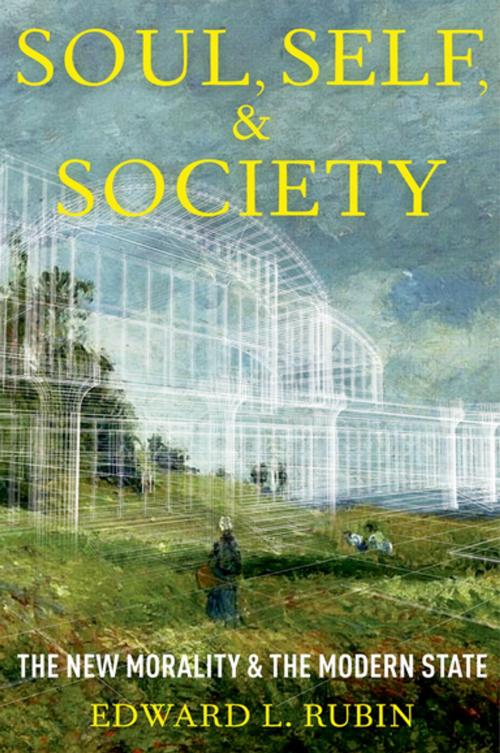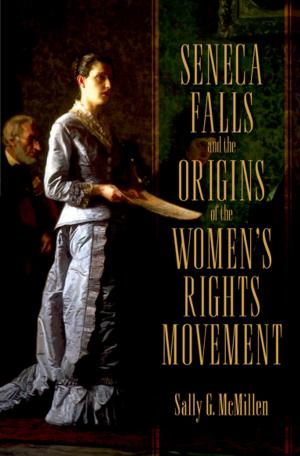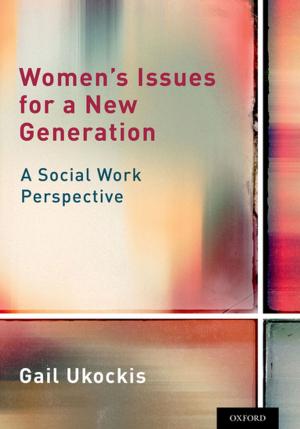Soul, Self, and Society
The New Morality and the Modern State
Nonfiction, Reference & Language, Law, Ethics, Social & Cultural Studies, Political Science, Government, Public Affairs & Administration, History, Modern| Author: | Edward L. Rubin | ISBN: | 9780199348671 |
| Publisher: | Oxford University Press | Publication: | February 17, 2015 |
| Imprint: | Oxford University Press | Language: | English |
| Author: | Edward L. Rubin |
| ISBN: | 9780199348671 |
| Publisher: | Oxford University Press |
| Publication: | February 17, 2015 |
| Imprint: | Oxford University Press |
| Language: | English |
Political and social commentators regularly bemoan the decline of morality in the modern world. They claim that the norms and values that held society together in the past are rapidly eroding, to be replaced by permissiveness and empty hedonism. But as Edward Rubin demonstrates in this powerful account of moral transformations, these prophets of doom are missing the point. Morality is not diminishing; instead, a new morality, centered on an ethos of human self-fulfillment, is arising to replace the old one. As Rubin explains, changes in morality have gone hand in hand with changes in the prevailing mode of governance throughout the course of Western history. During the Early Middle Ages, a moral system based on honor gradually developed. In a dangerous world where state power was declining, people relied on bonds of personal loyalty that were secured by generosity to their followers and violence against their enemies. That moral order, exemplified in the early feudal system and in sagas like The Song of Roland, The Song of the Cid, and the Arthurian legends has faded, but its remnants exist today in criminal organizations like the Mafia and in the rap music of the urban ghettos. When state power began to revive in the High Middle Ages through the efforts of the European monarchies, and Christianity became more institutionally effective and more spiritually intense, a new morality emerged. Described by Rubin as the morality of higher purposes, it demanded that people devote their personal efforts to achieving salvation and their social efforts to serving the emerging nation-states. It insisted on social hierarchy, confined women to subordinate roles, restricted sex to procreation, centered child-rearing on moral inculcation, and countenanced slavery and the marriage of pre-teenage girls to older men. Our modern era, which began in the late 18th century, has seen the gradual erosion of this morality of higher purposes and the rise of a new morality of self-fulfillment, one that encourages individuals to pursue the most meaningful and rewarding life-path. Far from being permissive or a moral abdication, it demands that people respect each other's choices, that sex be mutually enjoyable, that public positions be allocated according to merit, and that society provide all its members with their minimum needs so that they have the opportunity to fulfill themselves. Where people once served the state, the state now functions to serve the people. The clash between this ascending morality and the declining morality of higher purposes is the primary driver of contemporary political and cultural conflict. A sweeping, big-idea book in the vein of Francis Fukuyama's The End of History, Charles Taylor's The Secular Age, and Richard Sennett's The Fall of Public Man, Edward Rubin's new volume promises to reshape our understanding of morality, its relationship to government, and its role in shaping the emerging world of High Modernity.
Political and social commentators regularly bemoan the decline of morality in the modern world. They claim that the norms and values that held society together in the past are rapidly eroding, to be replaced by permissiveness and empty hedonism. But as Edward Rubin demonstrates in this powerful account of moral transformations, these prophets of doom are missing the point. Morality is not diminishing; instead, a new morality, centered on an ethos of human self-fulfillment, is arising to replace the old one. As Rubin explains, changes in morality have gone hand in hand with changes in the prevailing mode of governance throughout the course of Western history. During the Early Middle Ages, a moral system based on honor gradually developed. In a dangerous world where state power was declining, people relied on bonds of personal loyalty that were secured by generosity to their followers and violence against their enemies. That moral order, exemplified in the early feudal system and in sagas like The Song of Roland, The Song of the Cid, and the Arthurian legends has faded, but its remnants exist today in criminal organizations like the Mafia and in the rap music of the urban ghettos. When state power began to revive in the High Middle Ages through the efforts of the European monarchies, and Christianity became more institutionally effective and more spiritually intense, a new morality emerged. Described by Rubin as the morality of higher purposes, it demanded that people devote their personal efforts to achieving salvation and their social efforts to serving the emerging nation-states. It insisted on social hierarchy, confined women to subordinate roles, restricted sex to procreation, centered child-rearing on moral inculcation, and countenanced slavery and the marriage of pre-teenage girls to older men. Our modern era, which began in the late 18th century, has seen the gradual erosion of this morality of higher purposes and the rise of a new morality of self-fulfillment, one that encourages individuals to pursue the most meaningful and rewarding life-path. Far from being permissive or a moral abdication, it demands that people respect each other's choices, that sex be mutually enjoyable, that public positions be allocated according to merit, and that society provide all its members with their minimum needs so that they have the opportunity to fulfill themselves. Where people once served the state, the state now functions to serve the people. The clash between this ascending morality and the declining morality of higher purposes is the primary driver of contemporary political and cultural conflict. A sweeping, big-idea book in the vein of Francis Fukuyama's The End of History, Charles Taylor's The Secular Age, and Richard Sennett's The Fall of Public Man, Edward Rubin's new volume promises to reshape our understanding of morality, its relationship to government, and its role in shaping the emerging world of High Modernity.















